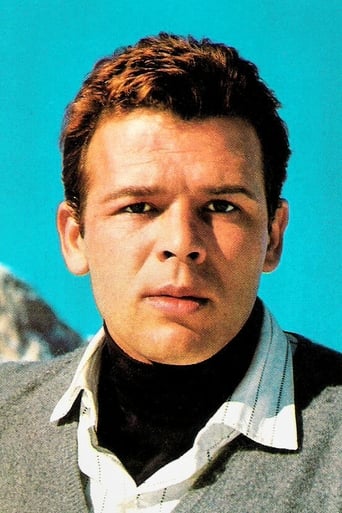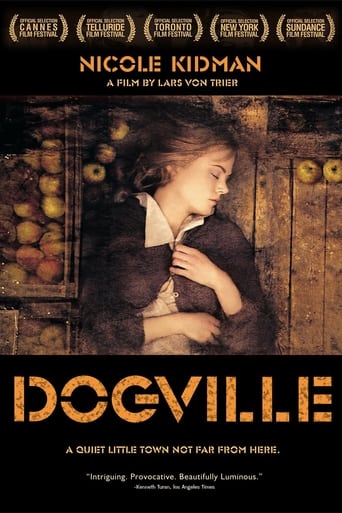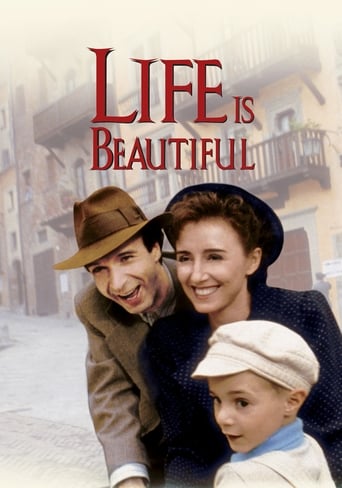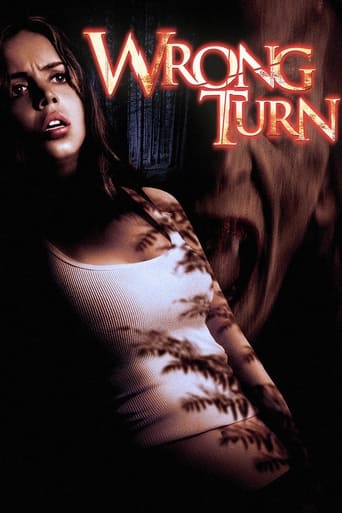

A Brief Vacation (1973)
Forced to support herself, her children, her physically incapacitated husband and her obtrusive brother and mother, a downtrodden working woman contracts tuberculosis. She is granted a brief vacation at a health spa, where a whole new world — and potential new life — is opened up to her.
Watch Trailer
Cast


Similar titles
Reviews
Those viewers who are feeling a little down about their own particular life situation may be a bit cheered when they see what Clara Mataro's daily grind is like, in Vittorio de Sica's 1973 offering "A Brief Vacation." The sole breadwinner in her family, living in a dingy, cramped apartment on the outskirts of Milan with her loutish husband, thuggish brother-in-law, waspishly senile mother-in-law and three young sons, her torturous job at a rubber factory is just another element in her daily hell. No wonder that when the National Health clinic forces her to go to a sanatorium in the Italian Alps to cure her incipient TB, Clara views this as the titular brief vacation. (If only the U.S. had a health care system like this!) Away from her usual troubles and surrounded by new friends, Clara inevitably blossoms, and that metamorphosis is wonderful to see. Florinda Bolkan, who had greatly impressed me in such marvelous gialli as "Lizard in a Woman's Skin" and "Don't Torture a Duckling," is superb here as Clara, especially when the prospect of a possible love affair at the sanatorium arises. Clara's fellow patients are a very interesting bunch; de Sica, the old neorealist master, directs winningly yet unobtrusively; son Manuel de Sica's theme song "Stay" is lush and superromantic; and the snowy backdrop of the Alpine countryside is often quite spectacular. So, does the film give poor Clara the reward of a happy ending? I would never dream of telling, but those who have seen such earlier de Sica classics as "The Bicycle Thief" and "Umberto D" might be able to guess. Clara Mataro is a remarkably well-drawn character, and my feeling is that most viewers will be very happy that they have spent a few brief hours with her....
I have never understood why Vittorio De Sica is not thought of as one of our greatest directors. I have heard and read gobs of praise for Hitchcock, Kurosawa, Bergman, Fellini, Godard and many others but have rarely noticed similar accolades for De Sica--yet he was responsible for many of the greatest films I have seen. Aside from his super-famous film, THE BICYCLE THIEF, few have seen or discussed his masterpieces such as MIRACLE IN MILAN, UMBERTO D. or THE CHILDREN ARE WATCHING US (my personal favorite)--yet these and many more of his films are among the greatest ever made. He was one of the directors responsible for creating a style of film ("Neo-realism") but here in the States, you'd never know this unless you are a crazed film fan (like myself). The trademark of these Neo-realist films are non-actors performing in very ordinary situations that usually are ignored in big-budget films. Despite what you may think, these films are definitely NOT dull and grab the viewer emotionally because he truly learn to love and care about the characters in the films. Generally, these small-budget films are super-true to life and the acting and writing are phenomenal.I made this little rant to set the stage for A BRIEF VACATION, as it is a late Neo-realistic film by De Sica. Once again, the characters are very simple Italian folk--the sort you'd almost never see featured in a film. In addition, the actors are not easily recognizable to the audience. As a result, you truly grow to care about the central character and root for her. But, also because it's a Neo-realistic film, the ending is true to the character instead of having a Hollywood-style ending where everything works out fine! The plot of the film involves a very over-worked and completely unappreciated working mother. She is the sole provider for a home with three small children, a lazy and obnoxious brother-in-law, a meddlesome mother-in-law and a temporarily disabled husband. When she has trouble keeping up at work, she goes to the local clinic and find out she has TB and needs to go on an extended rest--paid for by the state health care system. However, her selfish family insist she's fine and want her to stay on the job because they are just awful people who want her to stay and take care of their needs. Unfortunately, this nice lady is so nice, she has a hard time standing up for herself. But, when the problem is too much, she does finally go to the sanitarium despite their petty protests.At the sanitarium, her life changes. Instead of being so quiet and shy, she slowly comes out of her shell and makes many friends. She even attracts the attentions of a handsome younger man who desperately wants to marry her and take her away from her rotten home life. Seeing the lady blossom is amazing but true to the spirit of Neo-realism, the film ends on a less than fairy tale-like fashion but one very true to the characters.This is an excellent film with exceptional acting and direction. Some might find the subject matter a tad mundane, but believe me, it's worth some patience.
This is an amazingly beautiful film. The story of a woman of little means and a horrendous family life who learns much about the world in a sanatorium in the Italian alps. It gives her a brief vacation from a hard life. And understanding. And hope. Truly wonderful. Florinda Bolkan is a great actress ... emoting without emotion. This movie has many levels of plot and story rolled into a single, seemingly simple story. There are many levels of relationships in the movie. Of particular interest is the set of relationships formed between patients from the upper class, the 'paying' patients and those who are in the sanatorium paid for by the national health. The juxtapositions between have and have not, happy and sad, sick and healthy, doctor and patient, hardworking and lazy and many others form the basis of what we see as Clara's learning process and set of life dilemmas.Hard to find but worth it. Belongs on the top 250 list....but not enough people have seen it to vote.
Vittorio De Sica collaborated again on this excellent film with screenwriter Cesare Zavattini, as he had in the postwar "Shoe Shine," "The Bicycle Thief," Umberto D," and their 60s French film "A Young World." They have fashioned, from a story by Rodolfo Sonego, a realistic and at times romantic drama about an Italian housewife (Florinda Bolkan in an amazing performance), living in a Milan suburb and married to a crass husband (Renato Salvatori) who treats her like a pack animal. She supports the husband, unemployed because of an accident as well as her three sons and several in-laws, by working in a grim factory worse than that in Petri's "The Working Class Goes to Heaven" or Rossellini's "Europa '51."She collapses from exhaustion and TB and is sent at company expense for "una breve vacanza" at a sanatorium in the Dolomites. Here she experiences a major change and awakening, not merely physical and emotional (as in a tender relationship with a machinist) but a profound radical change in which she examines for the first time her fundamental nature as a human being and as a woman. She can never be the same after she returns home. Italian class and sex attitudes are perceptively analyzed here, and there is un unforgettable characterization by Adriana Asti as a foul-mouthed yet compassionate woman in the last days of a terminal illness. (Remember her in Bertolucci's "Before the Revolution"?)I find it ironic that though this great "feminist" movie was written and directed by men, it is more effective in that regard in ways that its contemporary "Swept Away," made by a woman, is not.














